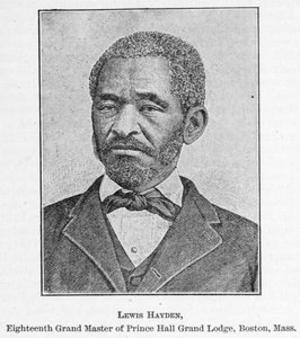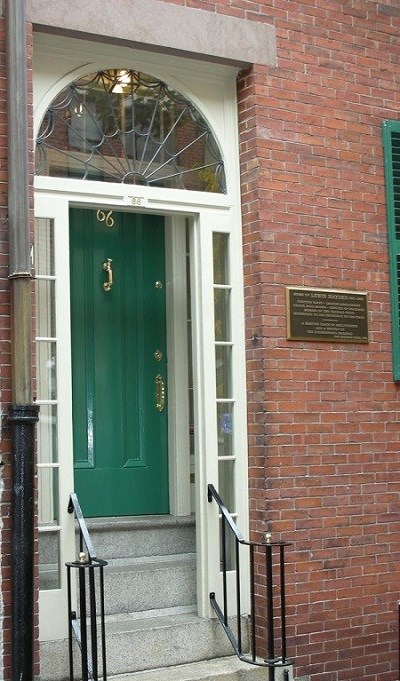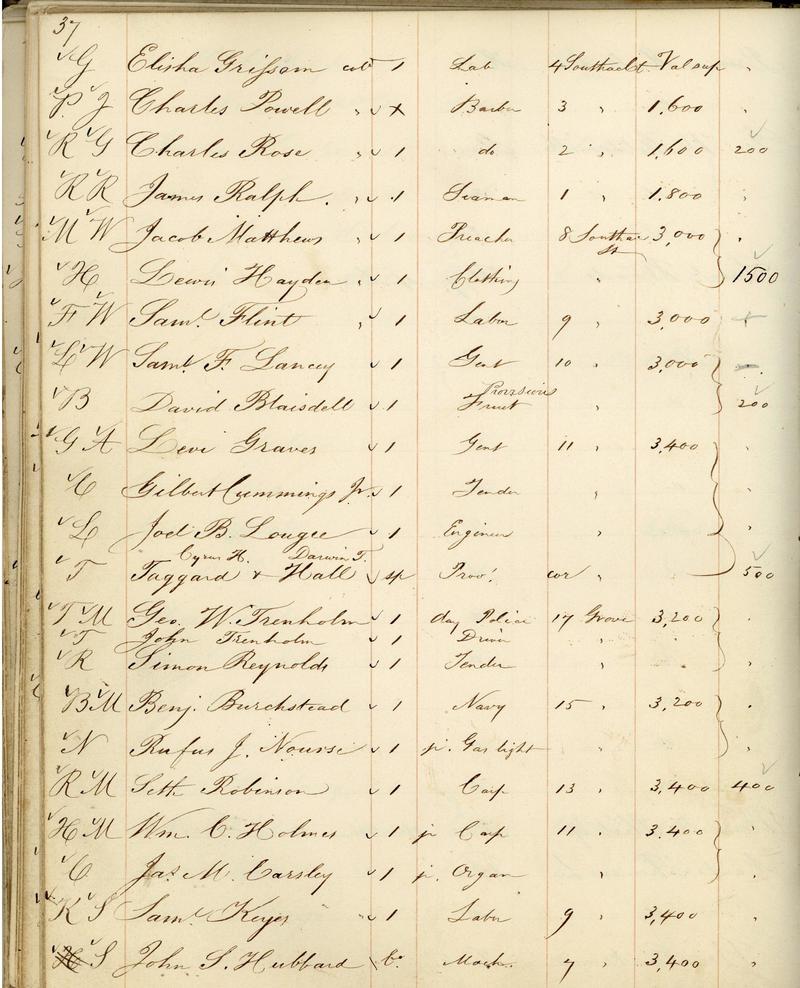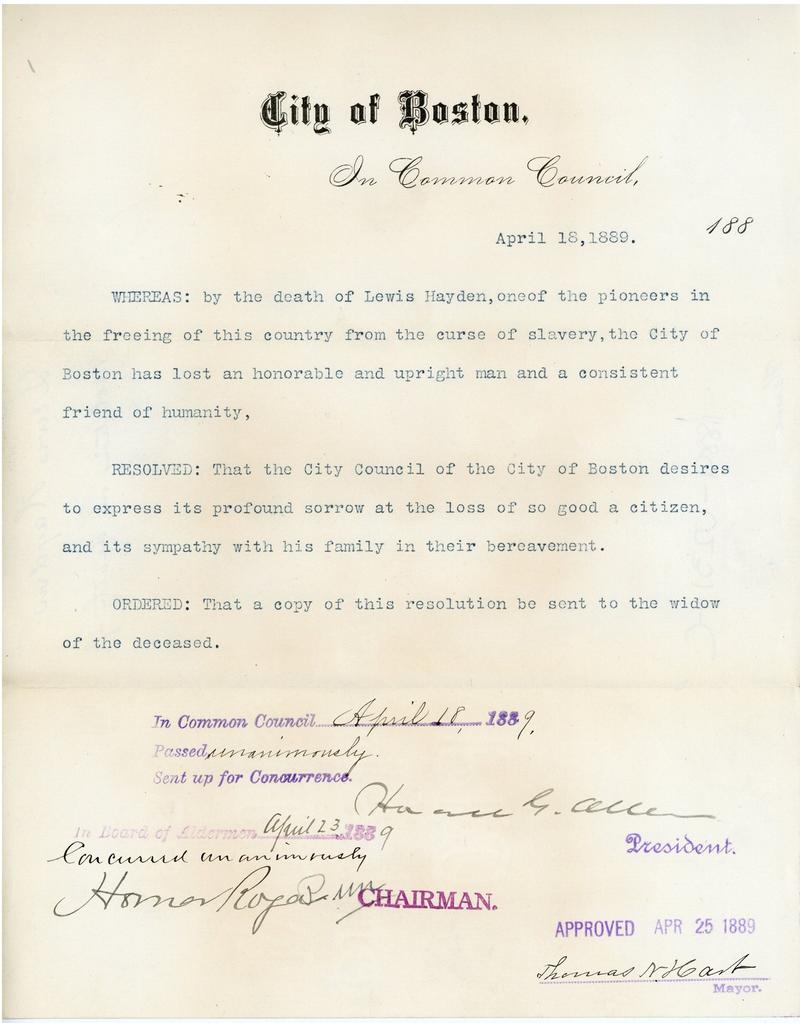In January of 1846, the Hayden family arrived in Boston. The Haydens became key leaders in Boston's abolitionist communities. Their Beacon Hill Home served as a stop on the Underground Railroad and a gathering place for Boston's abolitionist movement. A #BlackHistoryMonth 



In 1844, two years before their arrival in Boston, Lewis and Harriet Hayden and Harriet's son Joseph escaped from slavery in Kentucky via the Underground Railroad. The Haydens had experienced the brutality and loss of slavery firsthand
Lewis lost his first wife and two sons to the auction block. He remarried a woman named Harriet Bell, pictured here, and adopted her son Joseph. Together, the newly formed family planned their escape from the Kentucky plantation where they were enslaved. https://americanhistory.si.edu/collections/search/object/nmah_1960506
Aided by Methodist Minister Calvin Fairbank and teacher Delia Webster (front left of this photo), the Haydens escaped from Kentucky. For more about Delia's abolition work, see: http://www.nkyviews.com/trimble/text/delia.html)
Sometimes, Harriet and Lewis rubbed flour on their faces so that they would appear white, while Joseph hid under the seat of the wagon in which they traveled.
The Haydens safely arrived in Canada, but Calvin Fairbank and Delia Webster were apprehended on their journey back to Kentucky and imprisoned for their part in aiding the Haydens and others escaping from slavery.
The Haydens moved to Boston in 1846. Lewis opened a clothing shop in Beacon Hill, and both Haydens quickly became leaders in Boston's abolition movement Their Southac Street home (now 66 Phillips Street) became a stop on the Underground Railroad. (Photo courtesy of NPS)
According to the records of the Boston Vigilance Committee, between 1850 and 1860, Harriet and Lewis sheltered hundreds of people who were journeying to freedom.
City records hint at the activities at the Hayden home. The below page from the city's 1850 tax records shows the Haydens' residence at 9 Southac Street. Jacob Matthews, an African American preacher, is listed as living with them.
Although Mass effectively abolished slavery in 1783, the Fugitive Slave Act allowed "slave catchers" to catch escaped African Americans and return them to slavery for a bounty. To keep bounty hunters away, the Haydens posted guards and Lewis armed himself. http://digital.lib.ecu.edu/2339
In 1850, William and Ellen Craft, a couple who had fled to Boston from Georgia were tracked down by bounty hunters. They sought refuge at the Haydens' home. https://digitalcollections.nypl.org/items/510d47db-bcd1-a3d9-e040-e00a18064a99
The Haydens refused to surrender the Crafts, and Lewis claimed that he had kegs of gunpowder hidden in his home and would blow them up if bounty hunters tried to enter the house! The Haydens' protection kept the Crafts safe until they could leave the United States for England.
The Haydens not only sheltered individuals and families journeying to freedom, but also became involved in formal organizations fighting slavery. The petition below shows Lewis' signature on a petition for the use of Faneuil Hall for an Anti-Slavery Society meeting in 1852.
When the Civil War began, Lewis recruited soldiers for the Mass 54th Regt. After the war, he won a seat in the Mass General Assembly, Upon his death, Boston passed a resolution honoring him as "one of the pioneers in the freeing of this country from the curse of slavery."
Four years after Lewis' death, Harriet Hayden died, bequeathing her estate to Harvard Medical School to establish the "Lewis and Harriet Hayden Fund Hayden Scholarship for Colored Students." The scholarship continues today.
The Lewis and Harriet Hayden House still stands at 66 Phillips Street where it is a stop on the Black Heritage Trail. https://www.nps.gov/boaf/virtual-black-heritage-trail-tour.htm
You can read about the Lewis and Harriet Hayden Scholarship here: https://news.harvard.edu/gazette/story/2015/02/legacy-of-resolve/
And for more about the Crafts amazing story, check out this article from Smithsonian Magazine! https://www.smithsonianmag.com/history/the-great-escape-from-slavery-of-ellen-and-william-craft-497960/

 Read on Twitter
Read on Twitter











